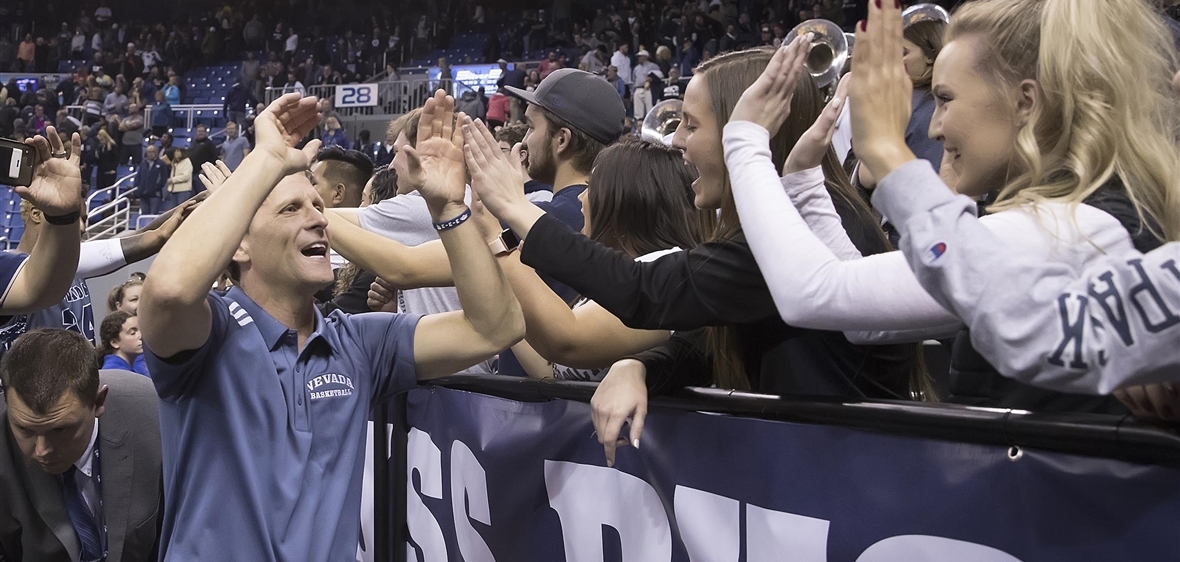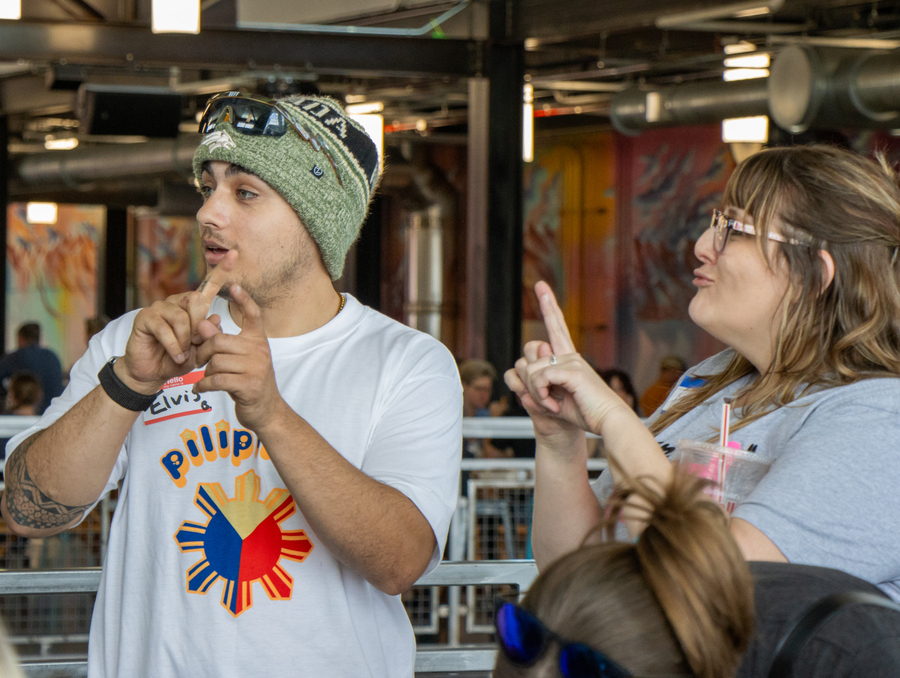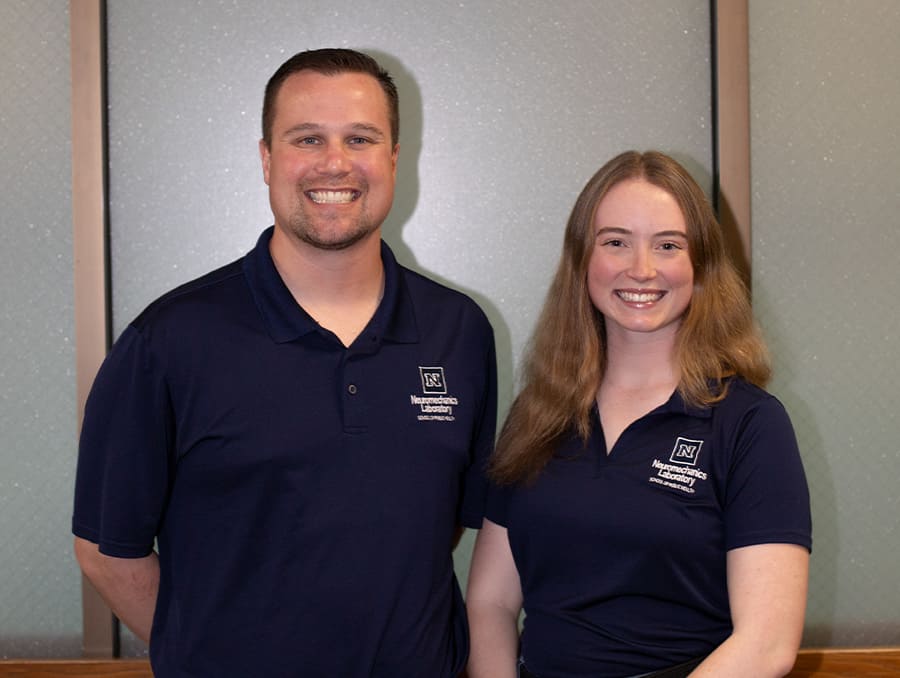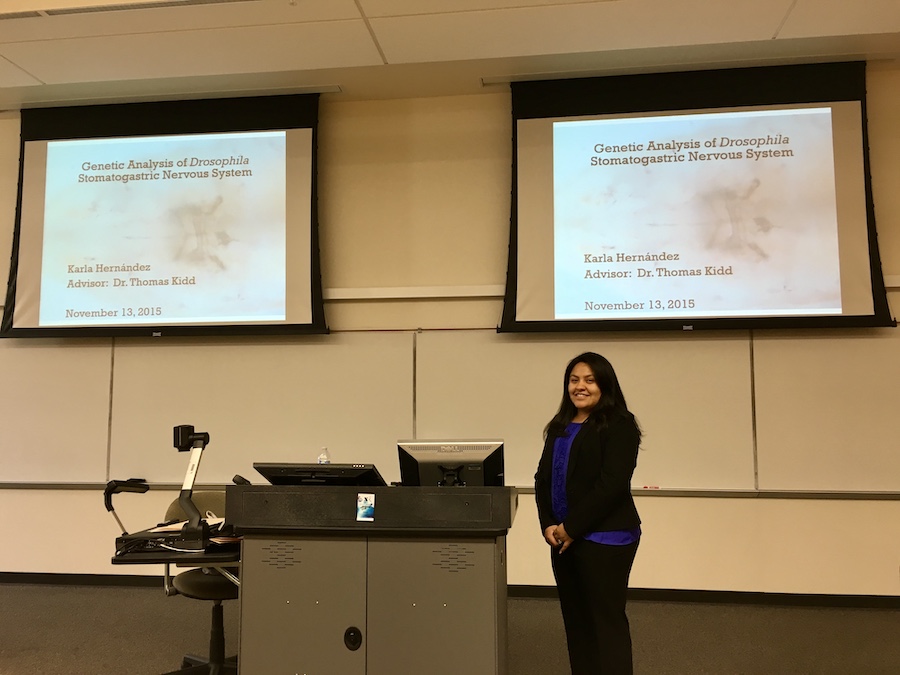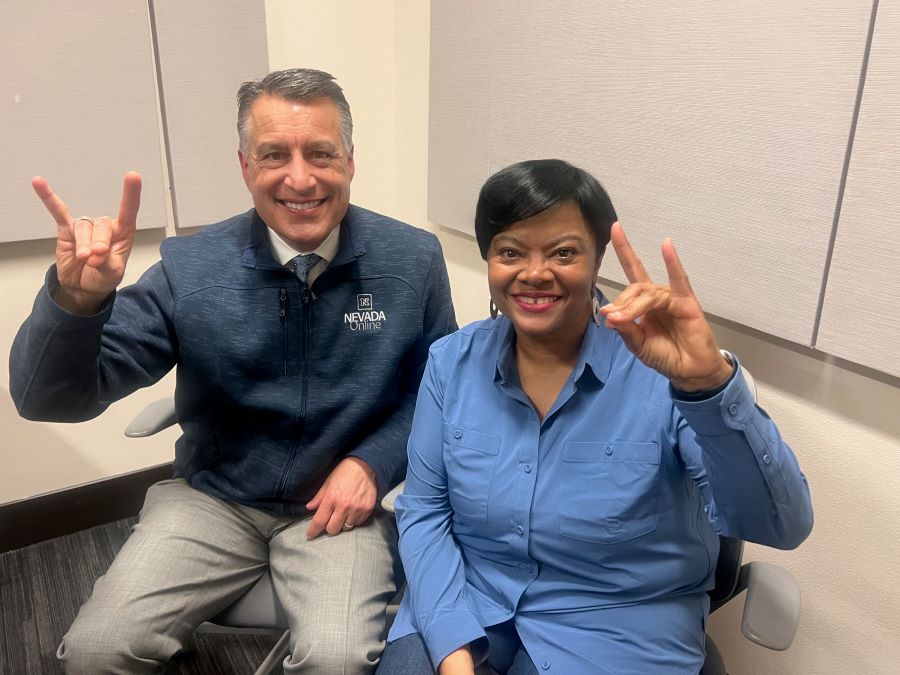Bill Musselman cut an impressive figure on the sidelines of the old Centennial Coliseum (today's Reno-Sparks Convention Center).
He would often wear leather jackets, with a sweater splashed with color beneath the leather jacket, and polyester slacks that were made for a 1970s man who was on the move. His light hair was permed and perfect, and his jawline seemed cut from granite, and was often set with fierce determination.
Bill Musselman had many favorite poses. Moments when he would freeze, and you would sense that his players, or the referees, had better watch out.
Perhaps his most formidable pose was his hands on his hips, his steely gaze focused sharply, like the eyes of a hawk on the hunt, on his Reno Bighorn players, the ends of the leather jacket brushed back ever so slightly by hands that were as expressive as the lines on his 38-year-old face.
He'd stand there for several moments, his expression a mix of impatience and frustration. In 1978, inflation was intensifying, and the consumer price index was rising. With the country slowly sliding into a recession, it was a time of impatience and frustration for a lot of people, including a basketball coach who had once coached in the Big 10 and professionally in the ABA.
He had been out of coaching for two years. He came to coach the Reno Bighorns in the first-year Western Basketball Association as a path back to basketball's bright lights. Each team in the league - with franchises in Reno, Tucson, Salt Lake City, Fresno, Washington Tri-Cities, Great Falls and Las Vegas - had a player payroll of only $82,000. Yet Bill Musselman was undeterred. He brought with him a sense of showmanship, savvy tactician's skill as a coach and an unrelenting drive to win. Or, as he often put: Effort, Energy, Enthusiasm.
The Reno Bighorns, owned by local businessman Bill Myers, would go through a revolving door of players during the 1978-79 season. They would make 21 player changes before the team had even reached the 30th game of a 48-game regular season schedule.
"We see a lot of players in street clothes after halftime," Musselman once told Sports Illustrated basketball writer Curry Kirkpatrick, perhaps only half-jokingly.
Eventually Musselman would find the right secret sauce for the Bighorns - a mix of experience, grit, chip on one's shoulder for having been overlooked, and talent. He found what he was looking for in players such as Gus Bailey, who played for the Rockets, Jazz and Bullets in the NBA and had made a journeyman's living in the league for a half-decade because he understood more clearly than most that every player on every professional team must understand his role; guard Donald "Duck" Williams, who had played at Notre Dame in the midst of a heated rivalry that played out on national TV between the Digger Phelps-coached Irish and the John Wooden-coached UCLA Bruins; Stan Rome, a physical, tough 6-foot-5 swingman who would go on to have a four-year NFL career as a wide receiver with the Kansas City Chiefs and later in his life open a series of halfway houses in his hometown of Valdosta, Ga.; Grover Woolard, a 6-foot-8 forward from Murray State with guard-like ball-handling skills and a deft outside shooting touch; and Randy Ayers, a dashingly handsome, talented, tall guard from Miami of Ohio with a very high basketball IQ. The year before, Ayers led Miami to a stunning first-round NCAA Tournament overtime upset over defending national champion Marquette.
Musselman brought the disparate elements together because he was a good basketball coach. Anyone who ever met Bill Musselman, or worked for him, or played under him, or coached against him, said that.
The Bighorns dove after lose balls (rare in a minor league like the WBA), passed crisply (very rare in a minor league like the WBA, where other teams' players were more about padding individual stats) and played good defense (even rarer for a minor league like the WBA). But this was how Bill Musselman's teams played. He hated losing, even at the professional level. He was fiery enough, driven enough, and strong enough to pose a threat to the reigning blue-blood establishment of early 1970s college basketball - so much so to have had legendary Indiana Coach Bob Knight (who was actually a friend of Musselman's) once refuse to shake his hand after playing Musselman's Minnesota Golden Gophers. Bill Musselman's teams were often upstarts, and the games were often about proving they belonged.
His sense of showmanship was also far and beyond what Reno had ever seen from a professional coach. Bill Musselman wasn't just a demanding coach in a form-fitting leather jacket and a perm. A professional organ player was imported for the home games at the Coliseum to make the minor league contests sound and feel more like an NBA venue. A young man who could juggle more basketballs while perched atop a unicycle than anyone on the face of the planet (or so it seemed for Bighorn fans) was a pre-game and halftime performer.
It was all part of the Bill Musselman coaching philosophy, the letters of which he would inscribe on his son Eric's lunch bag every morning before the younger Musselman headed off to school.
Effort (see above);
Energy (during one Bighorn game Musselman growled at Ayers, who would become the Bighorns' best player and who would later become a national collegiate basketball Coach of the Year at Ohio State, that his jersey wasn't tucked in correctly. Ayers, who always seemed to know what Musselman wanted even before Musselman would utter a word, seemed surprised, taken aback almost in his failure to remember a key detail that his coach no doubt preached to the team. He quickly nodded to his coach, deftly tucked the jersey in while still dribbling the ball with a defender clinging to him, then without blinking an eye raced up the floor, firing a cross-court pass to Woolard, who then drained a long-range jump shot. Musselman responded by pumping his fist in the air: "That's the way we do it!" he yelled at Ayers, with Ayers flashing a smile back at his hard-to-please coach);
Enthusiasm (in addition to the organist and juggling unicyclists, Don "Boot" Buttrey, from Canton, Ohio - Musselman was from Ohio and had close contacts with people throughout the state throughout his entire life, often calling them for their help - was another performer at Bighorn games. Buttrey eschewed his routines of chewing off the tops of beer cans or lighting firecrackers in his mouth for a more family-friendly devouring of a nine-inch pizza in under 20 seconds, to the roaring delight of Bighorn fans).
The Bighorns, willed by Musselman, nearly won the WBA title in the spring of 1979. They finished with a 28-20 regular season record but had to play WBA finals home games against the Tucson Gunners (coached by Herb Brown, the older brother of coaching legend Larry Brown) in the Reno High School gymnasium, with the Coliseum booked for another event. In April 1979 they lost, 4 games to 3 games, in a hotly contested series that would determine the league's first and only championship.
Bill Musselman's coaching stop in Reno worked. He was too good a coach not to coach in the NBA. Within a year he was coaching the NBA's Cleveland Cavaliers, and later was the founding coach of the expansion Minnesota Timberwolves in 1989. When he died at the Mayo Clinic in 2000 at the age of 59, he was mourned by coaches and players throughout the college and professional games.
Today, we have another Musselman, Bill's son Eric, roaming a basketball sideline in Reno, coaching the nation's sixth-ranked collegiate basketball team. Eric, like his father, is a good basketball coach - a savvy tactician, a stickler for detail and player development, a surprising showman who isn't above ripping the shirt off his chest when the championship moment warrants it. His daily twitter feed is an electronic 12 Commandments of Coaching and Life and a testament to "Three E's" he was raised by, and there are times at Lawlor Events Center when the 54-year-old Wolf Pack coach will implore the sold-out crowd to rise to its feet, to help will the Wolf Pack to a defensive stand.
There are no leather jackets. Eric prefers a much more collegiate look - collared Wolf Pack basketball shirt, navy blue slacks with black belt and sneakers. He can get on the players of the nation's sixth-ranked team with same fiery intensity as his father, though.
In a game two seasons ago, forward Jordan Caroline hit the deck hard along the baseline at Lawlor Events Center, rolling in pain for a few moments before gingerly making it to his feet. Like the 6-foot-6 Randy Ayers 40 years before, the 6-foot-7 Caroline is an intelligent and self-aware basketball player. He's highly physical, yet rarely makes mistakes. Because of his uncanny court awareness he is seldom in foul trouble, which is a contradiction for a player who seems to seek out contact whenever he has the ball. Caroline is in complete sync at all times with his coach, just the way Randy Ayers was with the elder Musselman four decades ago. Caroline limped toward the Wolf Pack bench, expecting to come out.
Eric Musselman, though, had others plans for Caroline.
"Get back out there!" he yelled to his star player, waving his arms urgently toward the court. "You can play through this."
Caroline looked dazed for a moment, then let Musselman's words sink in. It was a moment where the player needed to trust the coach. Caroline did just that. He turned back to the court and returned to action. A few plays later Caroline delivered a thundering dunk that brought the Lawlor crowd to its feet. You could almost hear Bill Musselman's belief in Randy Ayers from 1978 being conjured: "He's strong, tough, quick, unselfish, plays solid D, works hard and is a dream to coach. I can't believe nobody can use him up there (in the NBA)."
Said Eric on his tweeter feed on Dec. 4, words that no doubt Jordan Caroline and all of his Wolf Pack teammates have come to understand during their time coached by Eric: "It is important to huddle up with your team and tell them why you believe in them."
Both coaches of both teams believed in players who were determined to prove something; they felt then and now that there is still plenty to prove.
And this is perhaps why the University is at this moment, this moment of rarified ranking air where the Wolf Pack is positioned among the nation's elites (only Gonzaga, Kansas, Duke, Virginia and Michigan are currently ranked above the undefeated Wolf Pack). Jordan Caroline is a transfer from Southern Illinois. The Martin brothers - the immensely talented, unselfish and hard-working Cody and Caleb - have teamed with Jordan Caroline over the past two seasons to help lift Nevada to a Sweet Sixteen appearance in last year's NCAA Tournament and this year's No. 6 ranking.
The Martins, like Jordan Caroline, are transfers, from North Carolina State. In fact, Nevada's five starters are all transfers, making the Wolf Pack unique on today's one-and-done college basketball landscape. Longtime northern Nevada sportswriter Chris Murray of Nevada Sports Net, recently wrote in his "Monday Mailbag," this might be the first time a team has five fifth-year seniors in its starting lineup: "I'm not going to look through 353 Division I teams to find out. I am comfortable saying no other D-I team starts five fifth-year seniors like Nevada."
We are living in memorable times if you are a northern Nevada basketball fan. The Wolf Pack is undefeated, and into Eric Musselman's fourth season as the Wolf Pack's coach, it is apparent that something special is happening. The coach on the sideline has labored long and hard for this moment, and like his father 40 years before, has captured something in the community and across the nation that has resulted in record crowds and record recognition of the Wolf Pack program.
There are many reasons why this is so, but perhaps the most telling is Eric Musselman's determination to find like-minded players who are bright, talented and motivated. He's brought to the team an unmistakable stamp. You know an Eric Musselman-coached team the same way 40 years ago you knew a Bill Musselman-coached team.
The Wolf Pack, as evidenced by last year's two comeback victories in the NCAA Tournament, simply don't ever give up. They're unselfish and they move the ball and they have one of the NCAA's best offenses. Their coach who is never satisfied has gotten on them about their man-to-man defense, and the defense, with its premium placed on quick shifts, switches and above all else communication and understanding of one's teammates, has come around, too. This season they've come to understand their roles, and it's almost as if the ghost of Gus Bailey (he died in 1988) has been around to explain something he once told a Reno newspaper writer back in 1978-79 during his season with the elder Coach Muss: "Only one ball and five guys. If you can't get along and if you don't trust the other guy to do his job, ain't no way you're gonna win."
There are a lot of big games coming up before the post-season is upon the Wolf Pack, including Friday night's matchup in Los Angeles with No. 20 Arizona State.
There is still a lot left to prove.
Bill Musselman would tell the Pack not to coast until they see the finish line. Even then, he would probably tell the Pack to run through that finish line and keep going, pushing on for several hundred additional yards, just for good measure.
Eric Musselman would no doubt say the same thing.
"This is an easy job because everybody is hungry," Bill Musselman told Sports Illustrated 40 years ago about his Reno Bighorns, perhaps realizing what might've been coaching purgatory in 1978-79 in Reno had actually turned into something memorable.
"Things have changed for us," Eric Musselman said at his press availability earlier this week. "When we walk around airports now, outside of our own airport, our guys are recognized. It's great, but I think bottom line is for a program that all of this is new ... they've proved they could handle the added pressure, the added exposure. And they've been really single-minded focused on what's at hand ... and that's the next game."
Whether it's a leather jacket the coach was wearing 40 years ago on the sidelines of the old Centennial Coliseum or a pair of sneakers the coach wears today on the sidelines at Lawlor, it's clear that both Musselmans have captured northern Nevada's basketball imagination.
One belongs to our memories. The other is still busy creating them.
